Mealworms as Feeder Insects: Benefits, Care, and Storage Tips
- Team Pro-Meal

- Apr 8, 2023
- 6 min read
Mealworms are the larval stage of the Tenebrio molitor beetle and are widely recognized as a popular feeder insect for various pets, including reptiles, birds, and fish. Rich in protein and easy to digest, mealworms have become a staple in the diets of numerous captive animals.
Importance of mealworms in pet diets
Feeder insects like mealworms are crucial for the health and well-being of pets, as they provide essential nutrients that are often not found in commercially available pet food. Mealworms offer a balanced diet and cater to the specific needs of different species, ensuring optimal growth and health.
In this blog, we will explore the benefits of mealworms as feeder insects, discuss their nutritional value, and delve into their versatility in pet diets. We will also cover the proper care, breeding, and storage of mealworms, so you can provide the best nutrition for your pet.
Benefits of mealworms as feeder insects
Nutritional value

Mealworms are packed with essential nutrients that are vital for your pet's health. They are a great source of protein, which promotes muscle growth and development. Additionally, mealworms contain healthy fats, vitamins, and minerals, such as calcium and phosphorus, which contribute to strong bones and overall health.
Versatility in pet diets
One of the key advantages of mealworms is their versatility in pet diets. They are suitable for a wide range of animals, including reptiles, such as bearded dragons and geckos, as well as birds, like finches and parrots. Mealworms can also be fed to amphibians and fish, making them a convenient and nutritious option for various pet owners.

Readily available:
Mealworms are readily available in most pet stores and can be purchased in bulk, making them a cost-effective option for pet owners. Moreover, they are relatively easy to keep at home, allowing you to maintain a constant supply of nutritious feeder insects for your pets. This ensures your pets receive fresh and healthy mealworms as part of their balanced diet.
Life cycle of mealworms
Overview of the mealworm life cycle
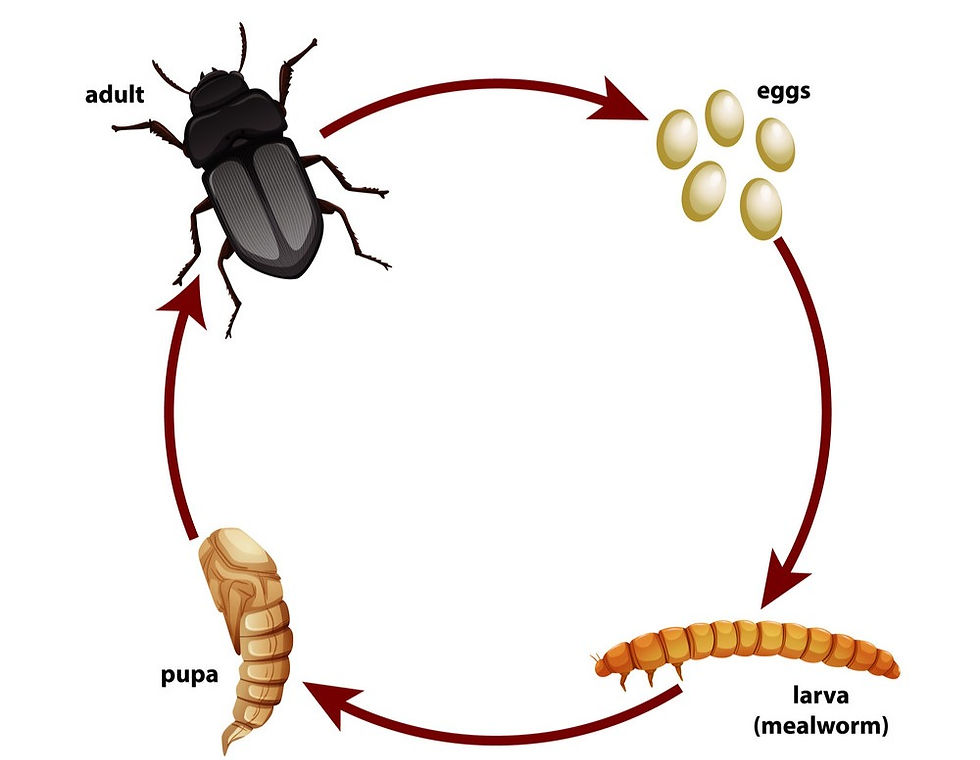
The mealworm life cycle consists of four stages: egg, larva (mealworm), pupa, and adult (beetle). The entire life cycle takes about 3 to 4 months to complete, depending on factors such as temperature and humidity. Understanding the life cycle of mealworms is essential to effectively utilize them as feeder insects and to breed them at home.
How the life cycle impacts their use as feeder insects
The mealworm stage of the life cycle is the most suitable for use as feeder insects, as they are rich in nutrients and easy to digest. As mealworms progress to the pupa and adult stages, their nutritional value decreases, and their exoskeleton becomes harder, making them less suitable for feeding pets. Understanding the mealworm life cycle helps ensure that you provide your pet with the most nutritious feeder insects possible.
How to care for live mealworms
Housing requirements
Mealworms can be easily housed in plastic containers or glass tanks with a tight-fitting lid to prevent escape. Provide a layer of substrate, such as wheat bran or oatmeal, for the mealworms to burrow and feed. Additionally, add egg cartons or cardboard pieces to create hiding spots and increase the surface area for the mealworms to move around.

Feeding and gut-loading
Mealworms should be provided with a consistent supply of food, such as vegetables, fruits, or grain-based products. Gut-loading, or feeding mealworms a nutrient-rich diet before feeding them to your pet, can significantly improve their nutritional value. Common gut-loading foods include carrots, apples, and dark leafy greens.
Maintaining proper temperature and humidity
Maintaining proper temperature and humidity is essential for the health and longevity of mealworms. Ideal temperatures range between 70°F and 80°F (21°C and 27°C), while humidity should be kept low to prevent the growth of mold and fungus. Avoid placing the mealworm container in direct sunlight or near heat sources, as this can cause rapid temperature fluctuations.
Tips for storing mealworms
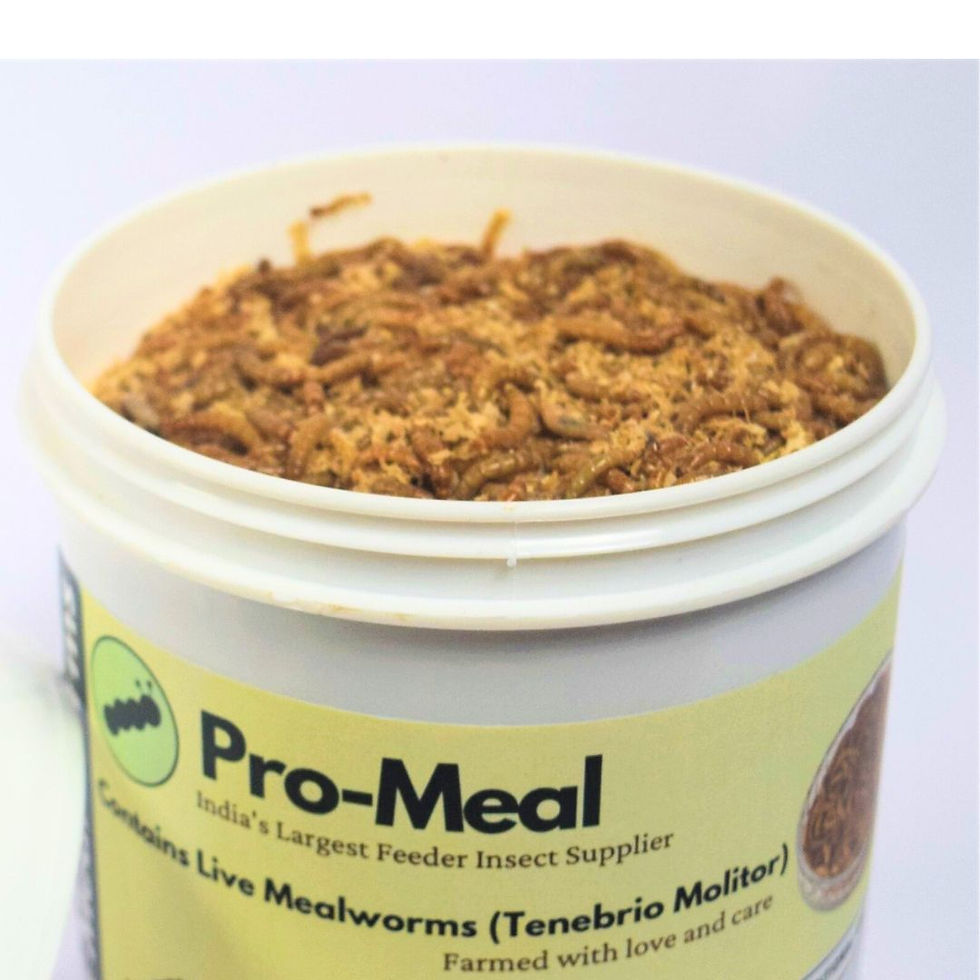
Short-term storage
For short-term storage, mealworms can be kept at room temperature in their original container, ensuring adequate ventilation. Make sure to provide a food source, such as sliced vegetables or fruits, to keep them well-fed and hydrated. Regularly remove any uneaten food to prevent mold growth.
Long-term storage
For long-term storage, mealworms can be stored in the refrigerator at temperatures between 40°F and 50°F (4°C and 10°C). This slows down their metabolism, prolonging their lifespan. Remove the mealworms from the refrigerator once a week to allow them to warm up and feed on fresh fruits or vegetables for a few hours before returning them to the refrigerator.

Ensuring mealworm health and vitality
Regularly inspect your mealworm colony for any signs of illness, mold, or pests. Remove dead mealworms and maintain optimal temperature and humidity levels. Providing a balanced diet and proper living conditions will ensure the health and vitality of your mealworms, making them a nutritious food source for your pets.
Feeding mealworms to your pets
Properly introducing mealworms to your pet's diet
Introduce mealworms gradually to your pet's diet to avoid digestive issues. Start by offering a few mealworms alongside their regular food, and gradually increase the quantity over time. Monitor your pet's reaction to the new food source and adjust the portion size accordingly.
Dusting mealworms with supplements
To enhance the nutritional value of mealworms, dust them with a calcium or vitamin supplement before feeding them to your pet. Place the mealworms in a plastic bag or container with the supplement powder, and gently shake to coat them evenly. This ensures that your pet receives essential nutrients that may be lacking in the mealworms' natural diet.
Tips for feeding live mealworms
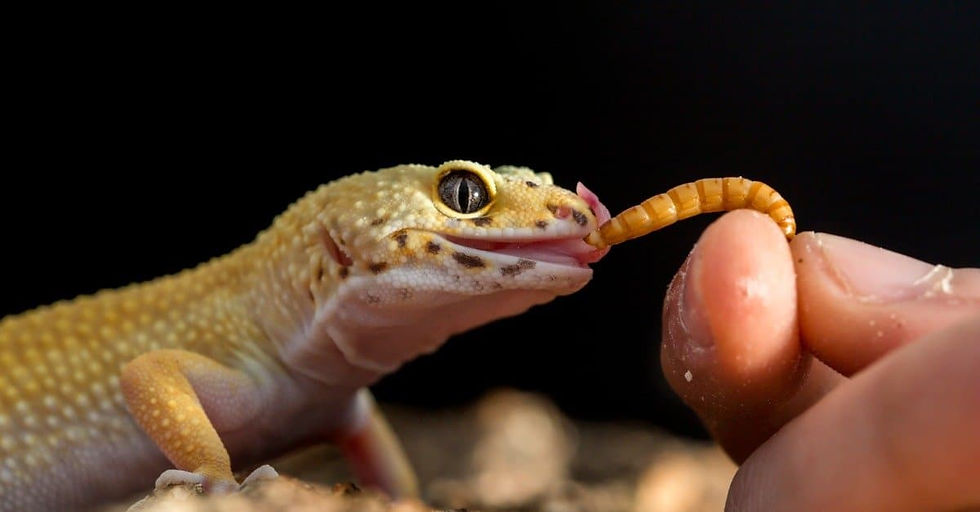
When feeding live mealworms, use feeding tongs or a spoon to avoid direct contact with the mealworms. Offer the mealworms one at a time to your pet, ensuring that they are consumed before offering more. Some pets may prefer pre-killed or frozen mealworms, so observe your pet's preference and adjust accordingly.
Promeal's mealworm products and commitment to quality
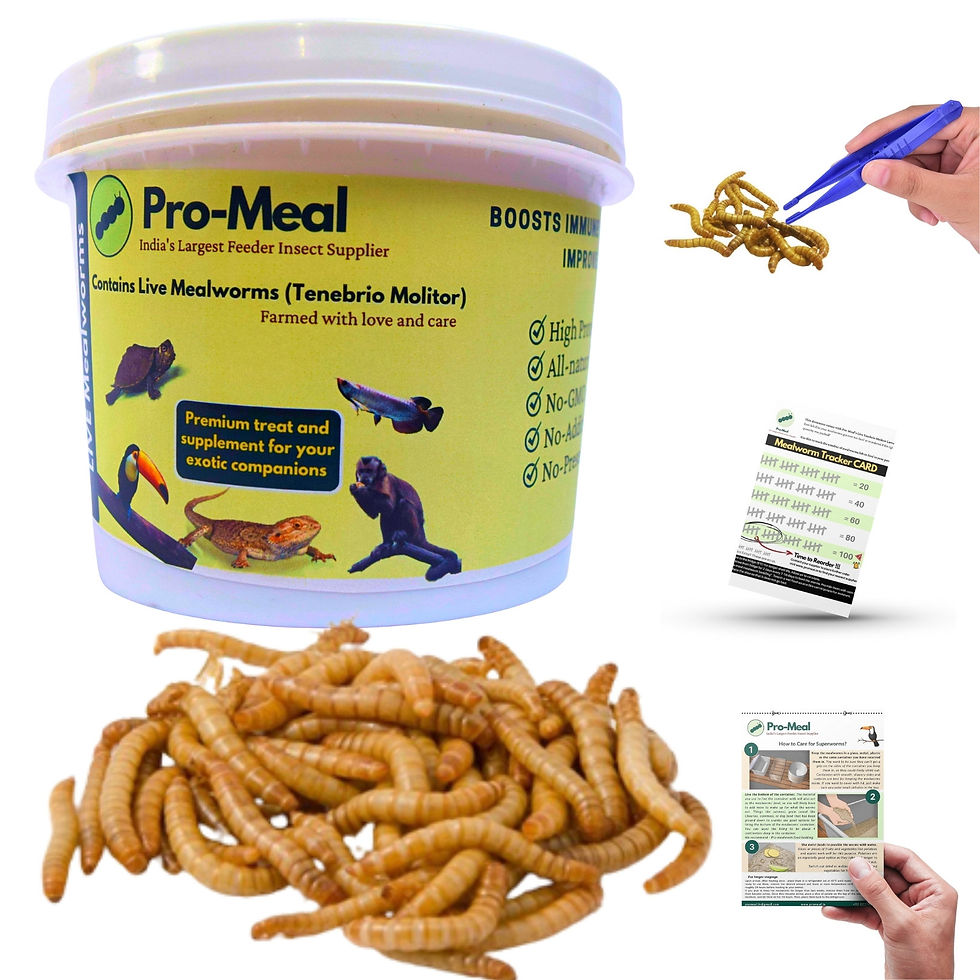
Live mealworms
Promeal is committed to providing the highest quality live mealworms for your pets. Our mealworms are carefully bred and raised on a nutritious diet, ensuring they are a healthy and protein-rich food source for your animals. Our live mealworms are available in various sizes to cater to the needs of different pets and are shipped in well-ventilated containers, ensuring their safe arrival.
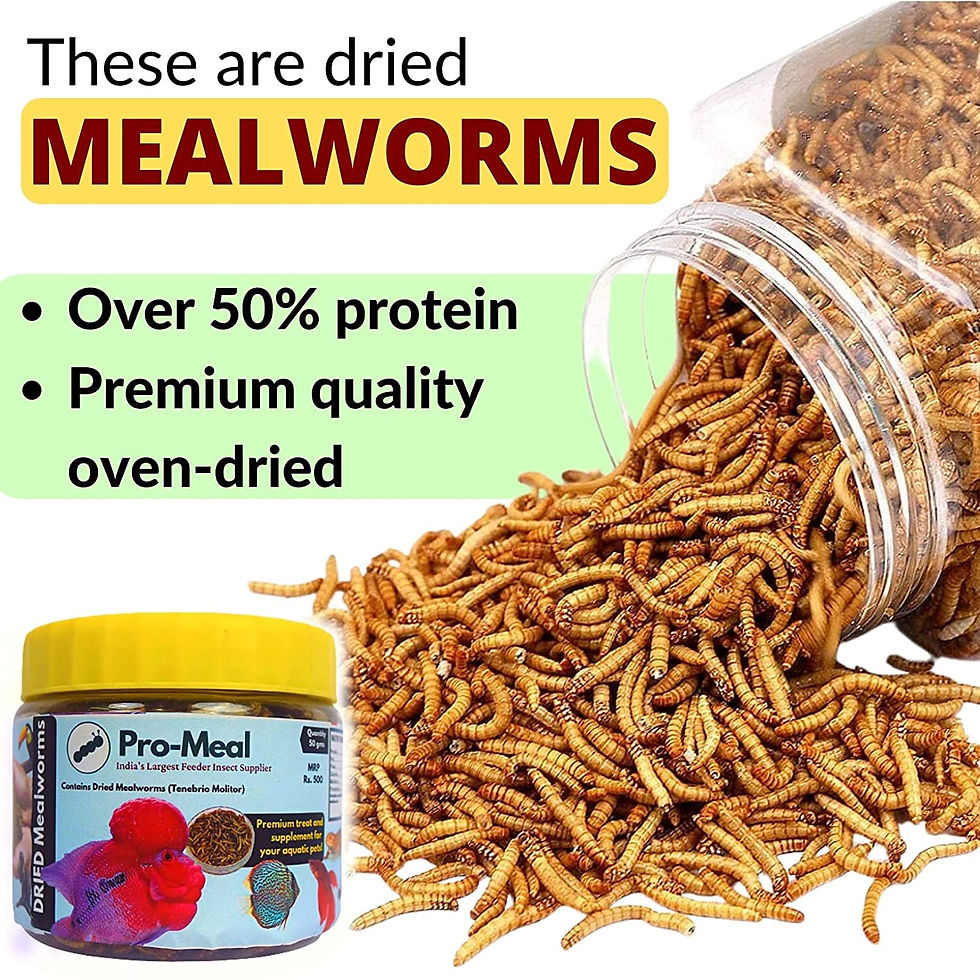
Dried mealworms
For those looking for a convenient and mess-free alternative, Promeal offers high-quality dried mealworms. These mealworms undergo a gentle drying process, preserving their nutritional value while making them easy to store and handle. Dried mealworms are a great option for pet owners with busy schedules or for those who prefer not to handle live insects.
Supplementary products for mealworm care and nutrition
Promeal also offers a range of supplementary products to support mealworm care and nutrition. Our selection includes gut-loading diets, calcium and vitamin supplements, and mealworm-specific housing and feeding supplies. By using Promeal's supplementary products, you can ensure that your mealworms are well cared for and provide the best possible nutrition for your pets.
By choosing Promeal's mealworm products, you can trust that you are providing your pets with a high-quality and nutritious food source. Our commitment to quality ensures that our mealworms are bred and raised to the highest standards, making them an excellent addition to your pet's diet.
Recap of the benefits of mealworms as feeder insects
In conclusion, mealworms are an excellent choice as feeder insects due to their high nutritional value, versatility in pet diets, and easy availability. They are simple to care for and can be stored both short-term and long-term. Mealworms can be introduced to your pet's diet as live or dried insects, depending on your preferences and your pet's needs.
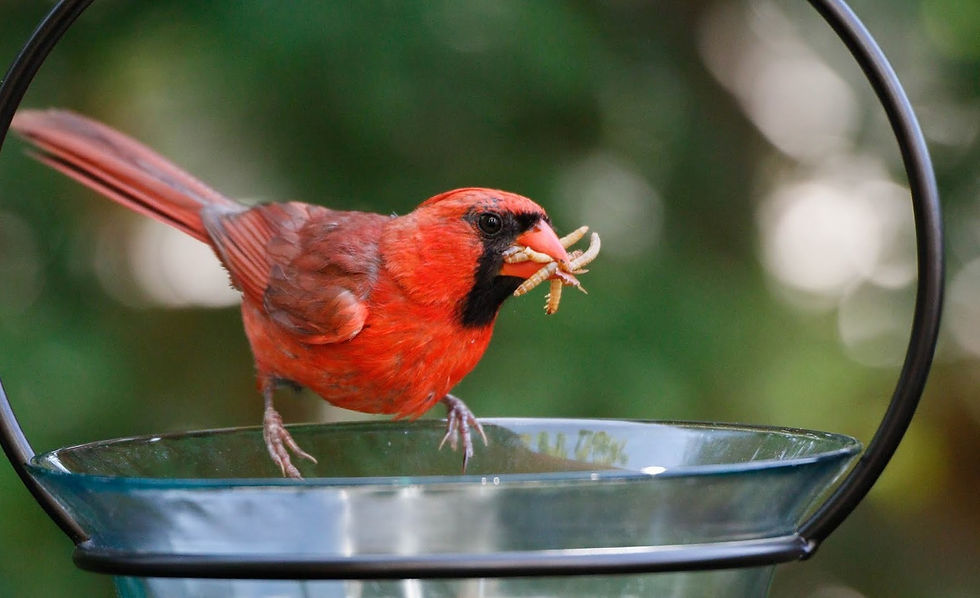
Encouragement to consider mealworms as a nutritious option for your pet's diet
Considering the numerous benefits mealworms offer, it's worth giving them a try as a nutritious and convenient option for your pet's diet. Their protein, fat, and essential nutrient content can contribute to the overall health and well-being of your pets, making mealworms a valuable addition to their feeding routine.
Ready to try mealworms for your pet? Promeal offers an extensive range of mealworm products, including live and dried mealworms, as well as supplementary products for their care and nutrition. Discover how mealworms can enhance your pet's diet by exploring our selection. [Image: Promeal's mealworm product range]
Don't wait any longer to provide your pets with the nutrition they deserve. Head over to Promeal's shop page to purchase mealworms and start incorporating them into your pet's diet today.


Comments